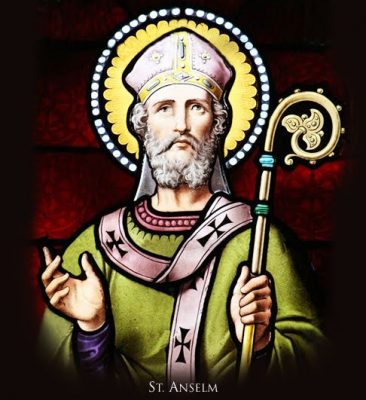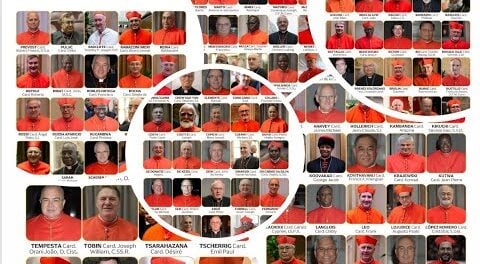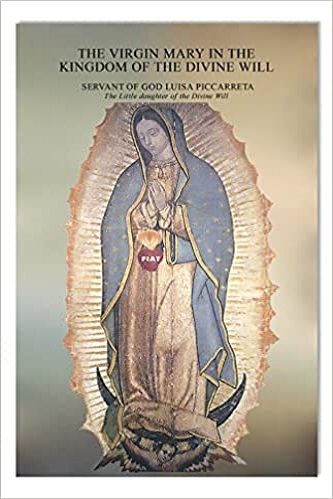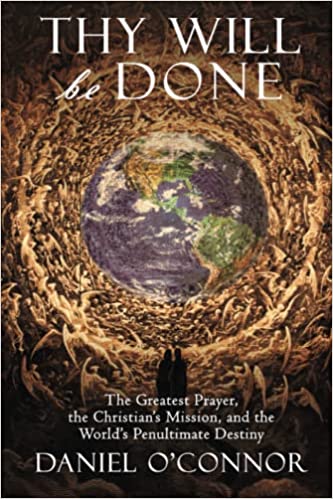Meditations by St. Anselm of Canterbury – First Meditation
From the book, Meditations and Prayers
May we suggest a little Gregorian chant (link below) to enhance your contemplation…
First Meditation
OF THE DIGNITY AND THE WOE OF MAN’S ESTATE
Our creation to the Image and Likeness of God.
Awake, my soul, awake; bestir thy energies, arouse thy apprehension; banish the sluggishness of thy deadly sloth, and take to thee solicitude for thy salvation. Be the rambling of improfitable fancies put to flight; let indolence retire, and diligence be retained. Apply thyself to sacred studies, and fix thy thoughts on the blessings that are of God. Leave temporal things behind, and make for the eternal.
What, then, in so divine an occupation of the mind, canst thou conceive more useful or more salutary than to recall in delighted musing thy Creator’s boundless benefits to thee? Consider what grandeur and what dignity He bestowed on thee in the very beginning of thy creation, and ponder well what loving and what adoring worship thou shouldest therefore pay Him.
It was assuredly a noble purpose which He formed for the dignity of thy state, when, creating and ordering the universal frame of the visible and the invisible creation, He determined to make man; for He determined to lavish richer honours on man’s nature than on all other creations in the universe. Behold thy lofty origin, and bethink thee of the due of love thou owest thy Creator. “Let Us make man,” said God, “to Our Image and Likeness” (Gen. i. 26). If thou awakest not at this word, O my soul; if thou art not all aflame with love of Him for His so ineffable graciousness of condescension towards thee; if thine inmost marrow burns not with longings after Him, what shall I say? Asleep shall I call thee? Or must I rather think thee dead? Consider diligently, therefore, what it is to have been created to God’s Image and God’s Likeness; thou hast in this thought the sweet earnest of a pious meditation in which thy musings may have full play.
Observe, then, that likeness is one thing; image another. For example, the horse, the ox, or other dumb animal may have a certain likeness to man; but the image of man is borne by none but a human being. Man eats, so does the horse; here is a certain likeness, a certain something common to creatures of diverse moulds. But the image of man is only borne by some human being, some being of selfsame nature with that man whose image he is. Image, therefore, is of a higher order than likeness.
God’s Likeness, then, may be attained by us in this way; if, musing on Him as the Good, we study to be good; if, owning Him the Just, we strive to be just; if, contemplating Him the Merciful, we make endeavours after mercy.
But how to His Image? Listen. God ever remembers Himself, understands Himself, loves Himself. If thou, therefore, after thy poor fashion, art unweariedly mindful of God, if thou understandest God, if thou lovest God, thou wilt then be man “to His Image;” for thou wilt be striving to do that which God does eternally. ‘Tis the duty of man to bend his whole being to this task; the task of remembering, of understandings and of loving the Highest Good. To this idea should every thought and every turn and folding of thy heart be moulded, chased, and formed; to be mindful of God, to understand Him, and to love Him; and thus savingly exhibit and display the dignity of thine origin in that thou wast created to the Image of God.
But why say that thou wast created to His Image, when, as the Apostle testifies, thou art indeed His Image? “The man,” he says, “ought not to cover his head, because he is the image and glory of God” (1 Cor. xii. 7).























Leave a Reply